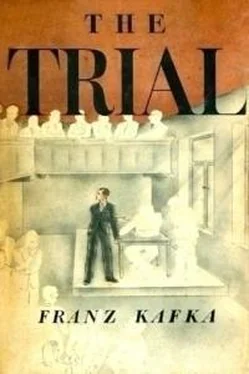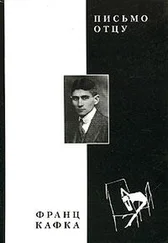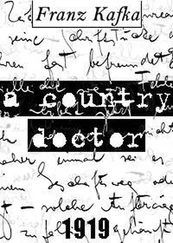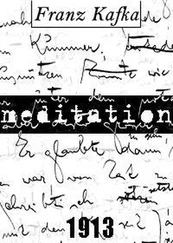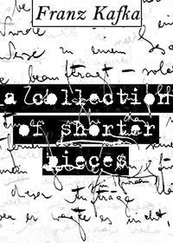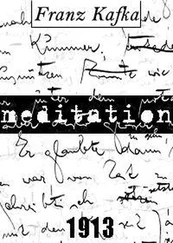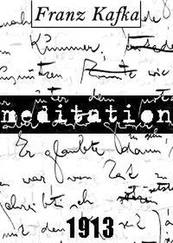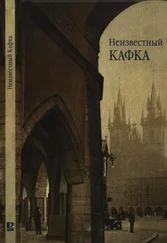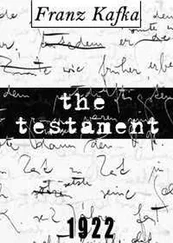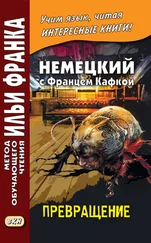At exactly half past nine, just when he was about to leave, there was a telephone call for him, Leni wished him good morning and asked how he was, K. thanked her hurriedly and told her it was impossible for him to talk now as he had to go to the cathedral. "To the cathedral?" asked Leni. "Yes, to the cathedral." "What do you have to go to the cathedral for?" said Leni. K. tried to explain it to her briefly, but he had hardly begun when Leni suddenly said, "They're harassing you." One thing that K. could not bear was pity that he had not wanted or expected, he took his leave of her with two words, but as he put the receiver back in its place he said, half to himself and half to the girl on the other end of the line who could no longer hear him, "Yes, they're harassing me."
By now the time was late and there was almost a danger he would not be on time. He took a taxi to the cathedral, at the last moment he had remembered the album that he had had no opportunity to give to the Italian earlier and so took it with him now. He held it on his knees and drummed impatiently on it during the whole journey. The rain had eased off slightly but it was still damp chilly and dark, it would be difficult to see anything in the cathedral but standing about on cold flagstones might well make K.'s chill much worse. The square in front of the cathedral was quite empty, K. remembered how even as a small child he had noticed that nearly all the houses in this narrow square had the curtains at their windows closed most of the time, although today, with the weather like this, it was more understandable. The cathedral also seemed quite empty, of course no–one would think of going there on a day like this. K. hurried along both the side naves but saw no–one but an old woman who, wrapped up in a warm shawl, was kneeling at a picture of the Virgin Mary and staring up at it. Then, in the distance, he saw a church official who limped away through a doorway in the wall. K. had arrived on time, it had struck ten just as he was entering the building, but the Italian still was not there. K. went back to the main entrance, stood there indecisively for a while, and then walked round the cathedral in the rain in case the Italian was waiting at another entrance. He was nowhere to be found. Could the director have misunderstood what time they had agreed on? How could anyone understand someone like that properly anyway? Whatever had happened, K. would have to wait for him for at least half an hour. As he was tired he wanted to sit down, he went back inside the cathedral, he found something like a small carpet on one of the steps, he moved it with his foot to a nearby pew, wrapped himself up tighter in his coat, put the collar up and sat down. To pass the time he opened the album and flicked through the pages a little but soon had to give up as it became so dark that when he looked up he could hardly make out anything in the side nave next to him.
In the distance there was a large triangle of candles flickering on the main altar, K. was not certain whether he had seen them earlier. Perhaps they had only just been lit. Church staff creep silently as part of their job, you don't notice them. When K. happened to turn round he also saw a tall, stout candle attached to a column not far behind him. It was all very pretty, but totally inadequate to illuminate the pictures which were usually left in the darkness of the side altars, and seemed to make the darkness all the deeper. It was discourteous of the Italian not to come but it was also sensible of him, there would have been nothing to see, they would have had to content themselves with seeking out a few pictures with K.'s electric pocket torch and looking at them one small part at a time. K. went over to a nearby side chapel to see what they could have hoped for, he went up a few steps to a low marble railing and leant over it to look at the altar picture by the light of his torch. The eternal light hung disturbingly in front of it. The first thing that K. partly saw and partly guessed at was a large knight in armour who was shown at the far edge of the painting. He was leaning on his sword that he had stuck into the naked ground in front of him where only a few blades of grass grew here and there. He seemed to be paying close attention to something that was being played out in front of him. It was astonishing to see how he stood there without going any closer. Perhaps it was his job to stand guard. It was a long time since K. had looked at any pictures and he studied the knight for a long time even though he had continually to blink as he found it difficult to bear the green light of his torch. Then when he moved the light to the other parts of the picture he found an interment of Christ shown in the usual way, it was also a comparatively new painting. He put his torch away and went back to his place.
There seemed to be no point in waiting for the Italian any longer, but outside it was certainly raining heavily, and as it was not so cold in the cathedral as K. had expected he decided to stay there for the time being. Close by him was the great pulpit, there were two plain golden crosses attached to its little round roof which were lying almost flat and whose tips crossed over each other. The outside of the pulpit's balustrade was covered in green foliage which continued down to the column supporting it, little angels could be seen among the leaves, some of them lively and some of them still. K. walked up to the pulpit and examined it from all sides, its stonework had been sculpted with great care, it seemed as if the foliage had trapped a deep darkness between and behind its leaves and held it there prisoner, K. lay his hand in one of these gaps and cautiously felt the stone, until then he had been totally unaware of this pulpit's existence. Then K. happened to notice one of the church staff standing behind the next row of pews, he wore a loose, creased, black cassock, he held a snuff box in his left hand and he was watching K. Now what does he want? thought K. Do I seem suspicious to him? Does he want a tip? But when the man in the cassock saw that K. had noticed him he raised his right hand, a pinch of snuff still held between two fingers, and pointed in some vague direction. It was almost impossible to understand what this behaviour meant, K. waited a while longer but the man in the cassock did not stop gesturing with his hand and even augmented it by nodding his head. "Now what does he want?" asked K. quietly, he did not dare call out loud here; but then he drew out his purse and pushed his way through the nearest pews to reach the man. He, however, immediately gestured to turn down this offer, shrugged his shoulders and limped away. As a child K. had imitated riding on a horse with the same sort of movement as this limp. "This old man is like a child," thought K., "he doesn't have the sense for anything more than serving in a church. Look at the way he stops when I stop, and how he waits to see whether I'll continue." With a smile, K. followed the old man all the way up the side nave and almost as far as the main altar, all this time the old man continued to point at something but K. deliberately avoided looking round, he was only pointing in order to make it harder for K. to follow him. Eventually, K. did stop following, he did not want to worry the old man too much, and he also did not want to frighten him away completely in case the Italian turned up after all.
When he entered the central nave to go back to where he had left the album, he noticed a small secondary pulpit on a column almost next to the stalls by the altar where the choir sat. It was very simple, made of plain white stone, and so small that from a distance it looked like an empty niche where the statue of a saint ought to have been. It certainly would have been impossible for the priest to take a full step back from the balustrade, and, although there was no decoration on it, the top of the pulpit curved in exceptionally low so that a man of average height would not be able stand upright and would have to remain bent forward over the balustrade. In all, it looked as if it had been intended to make the priest suffer, it was impossible to understand why this pulpit would be needed as there were also the other ones available which were large and so artistically decorated.
Читать дальше
Конец ознакомительного отрывка
Купить книгу
